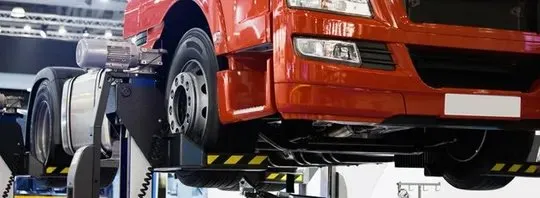In 2024, owning an RV truck comes with the responsibility of knowing how to handle common repairs. Whether you’re a new owner or a seasoned traveler, understanding these issues can save you time and money on the road. This guide dives into the most frequent RV truck repairs and offers practical solutions to keep you rolling smoothly.

Table of Contents
| Sr# | Headings |
|---|---|
| 1 | Introduction |
| 2 | Understanding Your RV Truck |
| 3 | Common RV Truck Repairs |
| 4 | Engine Issues |
| 5 | Electrical System Problems |
| 6 | Plumbing and Water System Failures |
| 7 | HVAC Troubleshooting |
| 8 | Tire and Wheel Concerns |
| 9 | Exterior Body Damage |
| 10 | Battery and Charging Problems |
| 11 | Brake System Maintenance |
| 12 | Interior Fixtures and Appliances |
| 13 | Preventive Maintenance Tips |
| 14 | Conclusion |
| 15 | FAQs |
Introduction
Owning an RV truck means embracing a life of adventure and freedom, but it also means being prepared for mechanical challenges along the way. This article explores the most common issues that RV truck owners face and equips you with the knowledge to troubleshoot and resolve these problems efficiently. Let’s dive into the world of RV truck repairs and ensure your next journey is smooth and stress-free!
Understanding Your RV Truck
Before we delve into specific repairs, it’s essential to understand the basics of your RV truck. RVs are complex vehicles that combine living quarters with a motorized chassis. This integration means that maintenance requires knowledge of both automotive and residential systems.
Getting to Know Your RV Truck
Your RV truck is not just a vehicle; it’s your home on wheels. Understanding its unique components—such as the engine, electrical systems, plumbing, and appliances—will empower you to tackle repairs with confidence.
Common RV Truck Repairs
RV trucks, like any vehicle, are prone to certain recurring issues. Knowing these common problems and their solutions can prevent breakdowns and ensure a hassle-free journey.
Engine Issues
The engine is the heart of your RV truck. Common problems include overheating, poor fuel efficiency, and strange noises. Regular oil changes and engine inspections can prevent major issues.
Electrical System Problems
Issues with the electrical system can range from a dead battery to malfunctioning appliances. Check fuses regularly and inspect wiring for wear or damage.
Plumbing and Water System Failures
Leaky pipes, clogged drains, and faulty water heaters can disrupt your travel plans. Familiarize yourself with your RV’s plumbing layout and carry basic repair supplies.
HVAC Troubleshooting
Heating and air conditioning problems can make your RV uncomfortable. Clean filters and check ducts for obstructions to maintain optimal HVAC performance.
Tire and Wheel Concerns
Blowouts and uneven tire wear are common due to the weight and usage of RVs. Monitor tire pressure and inspect tires for cracks or bulges regularly.
Exterior Body Damage
From minor scrapes to major collisions, exterior damage is a risk on the road. Address rust spots promptly and learn basic body repair techniques.
Battery and Charging Problems
RV batteries power everything from lights to slides. Understand your battery type and charging requirements to avoid unexpected power failures.
Brake System Maintenance
Brake pads and rotors wear out over time. Regularly inspect brakes and have them serviced by a professional to ensure safe stopping.
Interior Fixtures and Appliances
From refrigerators to toilets, RV appliances require maintenance. Keep manuals handy and perform routine checks to catch problems early.
Preventive Maintenance Tips
Prevention is key to avoiding costly repairs and ensuring your RV truck stays in top condition. Follow these proactive steps to keep your vehicle running smoothly:
- Regular Inspections: Schedule routine inspections for all systems.
- Fluid Checks: Monitor oil, coolant, and other fluid levels regularly.
- Cleanliness: Keep your RV clean inside and out to prevent mold and corrosion.
- Documentation: Maintain a log of repairs and maintenance for reference.
- Emergency Kit: Always carry a basic toolkit and spare parts for quick fixes on the road.
Conclusion
Navigating the world of RV truck repairs doesn’t have to be daunting. By understanding common issues and taking proactive measures, you can enjoy worry-free travels in your RV truck. Remember, regular maintenance and prompt repairs are the keys to keeping your home on wheels in peak condition.
FAQs
What should I do if my RV truck engine overheats?
If your engine overheats, pull over immediately and let it cool down. Check coolant levels and inspect for leaks before attempting to restart.
How often should I check my RV truck tires?
Inspect your tires before every trip and monitor pressure regularly. Replace tires that show signs of wear or damage promptly.
Can I fix minor electrical issues in my RV truck myself?
Yes, many electrical issues such as blown fuses or loose connections can be fixed with basic tools. Ensure to disconnect power sources before attempting repairs.
What should I do if I notice a water leak inside my RV truck?
Identify the source of the leak and shut off water supply if possible. Use sealing tape or patch kits for temporary fixes until a permanent solution can be implemented.
How can I prevent mold in my RV truck?
Maintain good ventilation and monitor humidity levels inside your RV. Regularly clean and inspect areas prone to moisture buildup.